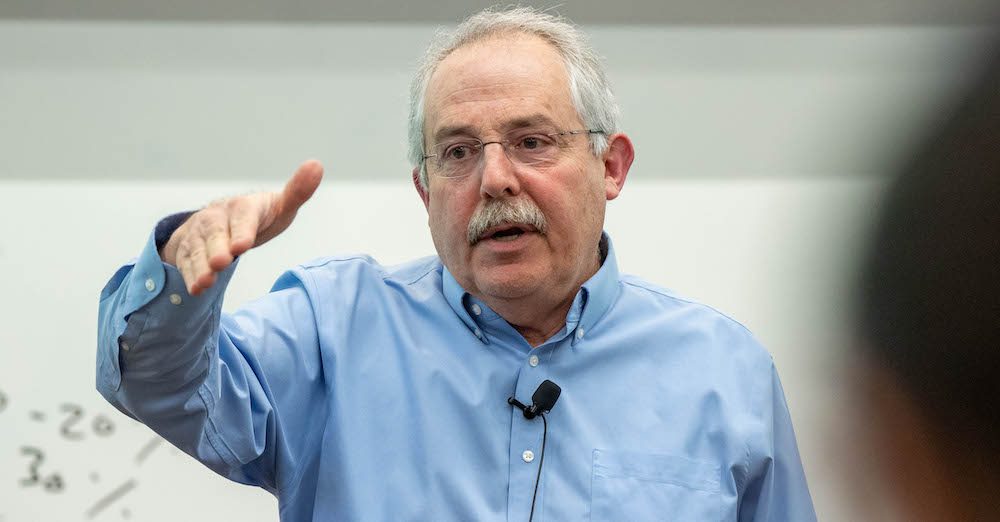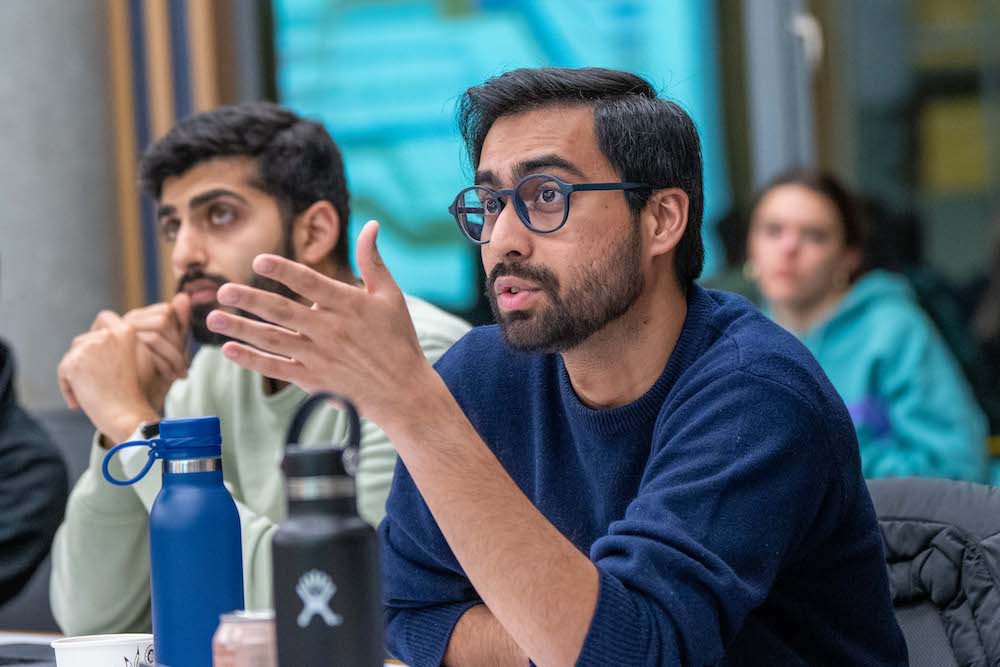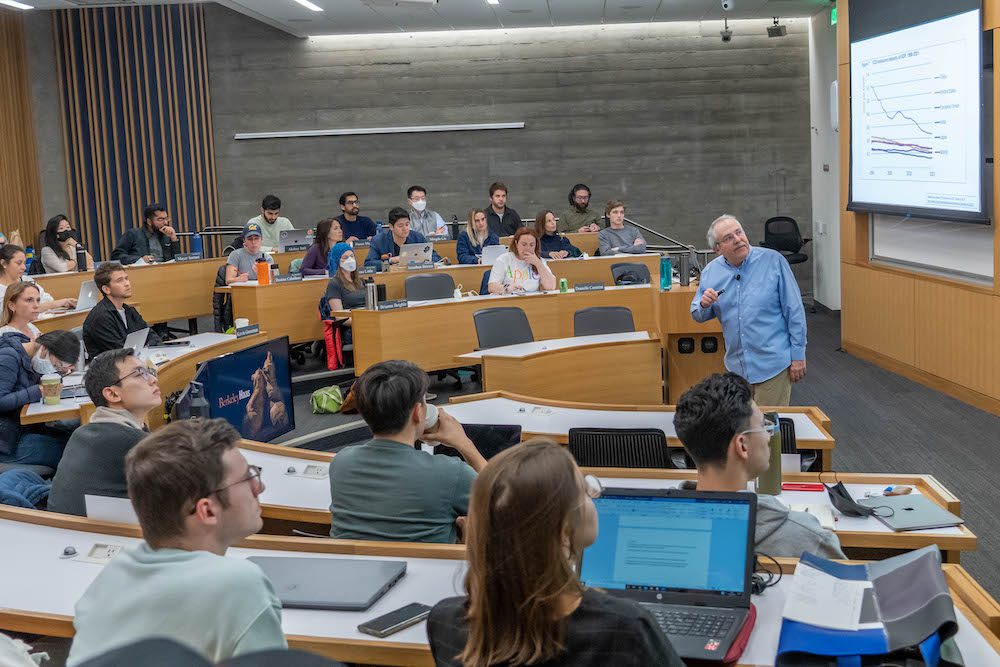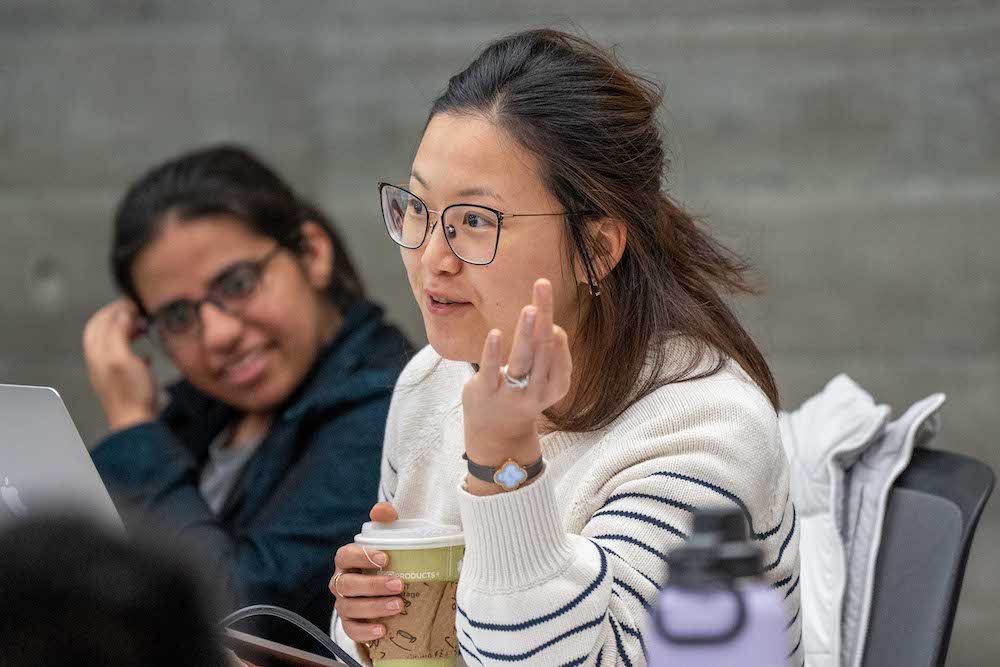Classified articles spotlight some of the more powerful lessons faculty are teaching in Haas classrooms.

It’s week four of the Climate Change and Business Strategy course at Berkeley Haas, and Senior Lecturer Andrew Isaacs kicks off with a slide that compares China’s CO2 emissions to those of the U.S. and other countries.
“What you notice right away is a three-fold increase coming from China,” he said, noting that the country’s blazing economic growth has come with a huge increase in demand for energy. “This is like nothing the world has experienced. China is the elephant in the room right now, even though the US still leads the world in cumulative emissions of planet-warming gasses.”
As class continues, Isaacs covers the different potencies of the main greenhouse gasses, presents a quick tutorial on the First Law of Thermodynamics—energy can neither be created nor destroyed, only converted from one form to another—and posts graphs that show how much countries have warmed over time and track loss of ice and snow around the world. “There will be a September within your lifetime that sees an ice-free Arctic Ocean,” he tells the 51 Haas Full-time and Evening & Weekend MBA students in the class at Chou Hall.

It’s a lot for students to take in. “I knew there was a crisis, but to see how it might play out is mind blowing,” said Harry Davies, MBA 23, who interned for Impossible Foods last summer and plans to pursue a career at the intersection of sustainability and food.
“I knew there was a crisis, but to see how it might play out is mind blowing,” – Harry Davies, MBA 23.
After launching the course two years ago, Isaacs’ worry about the planet’s fate has only escalated. “We’re only starting to grapple with these problems,” he said. “In the coming weeks of class we’ll look at the various solutions available to us. But if we get climate change wrong, it doesn’t matter what else we get right.”
One key to getting it right? Electrification—and moving away from the inefficiency of fossil fuels, particularly gasoline-powered automobiles, Isaacs told students. “If I’m driving to work in a gasoline-powered car, 10% of the energy in each gallon of gas I burn gets me to work, and the other 90% goes to heating up the air around the car. You wanted mobility, but you used something—an automobile —that instead is good at producing heat,” he said. “Our economy is built substantially on the inefficient and inappropriate use of resources.”
“Our economy is built substantially on the inefficient and inappropriate use of resources.” – Andrew Isaacs
Response to a wildfire
A geochemist who started his career as a scientist at NASA, Isaacs created the Climate Change and Business Strategy course after being forced to evacuate his home in Napa, California, during the 2020 North Bay wildfires. Isaacs didn’t end up losing his house. But the fire did lead him to examine how he could do more to educate students about climate change. Since introducing the course, he also helped Haas launch a summer minor in sustainability open to all UC Berkeley undergraduates.

The class has filled up every semester. It helps immensely that Haas Dean Ann Harrison and Sustainability Director Michele de Nevers have both supported it since its inception, Isaacs said.
“Drew’s course is critical to ensuring that our students graduate equipped to take on both the challenges and opportunities that climate change poses to business and our world,” de Nevers said. “A basic understanding of the fundamental science of climate change is critical to implementing and evaluating whether a business’s sustainability efforts are effective or just greenwashing.”
“A basic understanding of the fundamental science of climate change is critical to implementing and evaluating whether a business’s sustainability efforts are effective or just greenwashing.” – Michele de Nevers
The class covers a sweeping number of topics, including climate governance, carbon offsets, carbon capture and storage, greenwashing versus informed decision making, and investing in climate solutions. Students also examine corporate strategies, studying Apple’s climate roadmap, Tesla’s impact report, and Unilever’s progress. Guest speakers this semester include Peter Fiske, MBA 02, director of the Berkeley Lab’s Water-Energy Resilience Institute, and Phoebe Wang, an investment partner at the Amazon Climate Pledge Fund, who will discuss climate startups.
In April, Graduate Student Instructor Natàlia Costa i Coromina, who has taught the class since fall 2021, will teach a session, exploring a case she co-wrote with Isaacs that questions whether Gen Z’s climate knowledge matches its climate concern.
Costa i Coromina, a second-year student in the Master of Development Practice at UC Berkeley, said she wants students who enter the course with “radical passion and a willingness to learn,” and to leave not deflated by climate anxiety, but instead with an action plan and a systems change mindset.
“They learn how hard it is going to be, because climate change will be (and is already) impacting every aspect of our lives” she said. “We equip students with the science, from the Keeling Curve (a daily record of global atmospheric carbon dioxide concentration) and GHG emissions to offsets and resiliency; and then their eyes open to what does this all means for business: that, in fact, every single department—marketing, supply chain, operations, finance, HR—has a role to play.”
Filling in the gaps
Students said they had a wide variety of reasons for enrolling in the class, from a desire to create more effective policies at work to exploring the science of climate change to making more effective changes in their personal and work lives.
Himanshi Arora, MBA 24, came to Haas after working as an operations manager at Procter & Gamble, where she considered how to make packaging more sustainable and delivery more efficient. “I’ve been thinking about getting deeper into climate change and sustainability for a while,” she said. “Climate change is such a huge problem that will impact every corner of the Earth, particularly people who are marginalized. I took this class because I want to know if my thinking (about how to make change) is right and to fill in the gaps in my knowledge.”

Some students, including Rathin Ramesh, EWMBA 23, enrolled in the course as part of earning the Michaels Graduate Certificate in Sustainable Business, which includes nine units of sustainability coursework over the course of the MBA program. Ramesh said the course will help him to make more impactful decisions for his company, a cannabis delivery service. “All of my drivers use cars, and two of them have a Prius. In trying to apply this knowledge one of the first things you’d do is figure out how to electrify your fleet or implement more sustainable growing practices at the farms we work with.”
Joy Wang, MBA 23, who is from China and has lived in the U.S. for a decade, said the world—not just China—shoulders the responsibility for turning the climate crisis around. Wang, who will work at EY Parthenon after graduating, said many projects she worked on while interning at EY required a sustainability strategy. “One day, these projects will be a bigger part of my job, so I want to prepare,” she said.